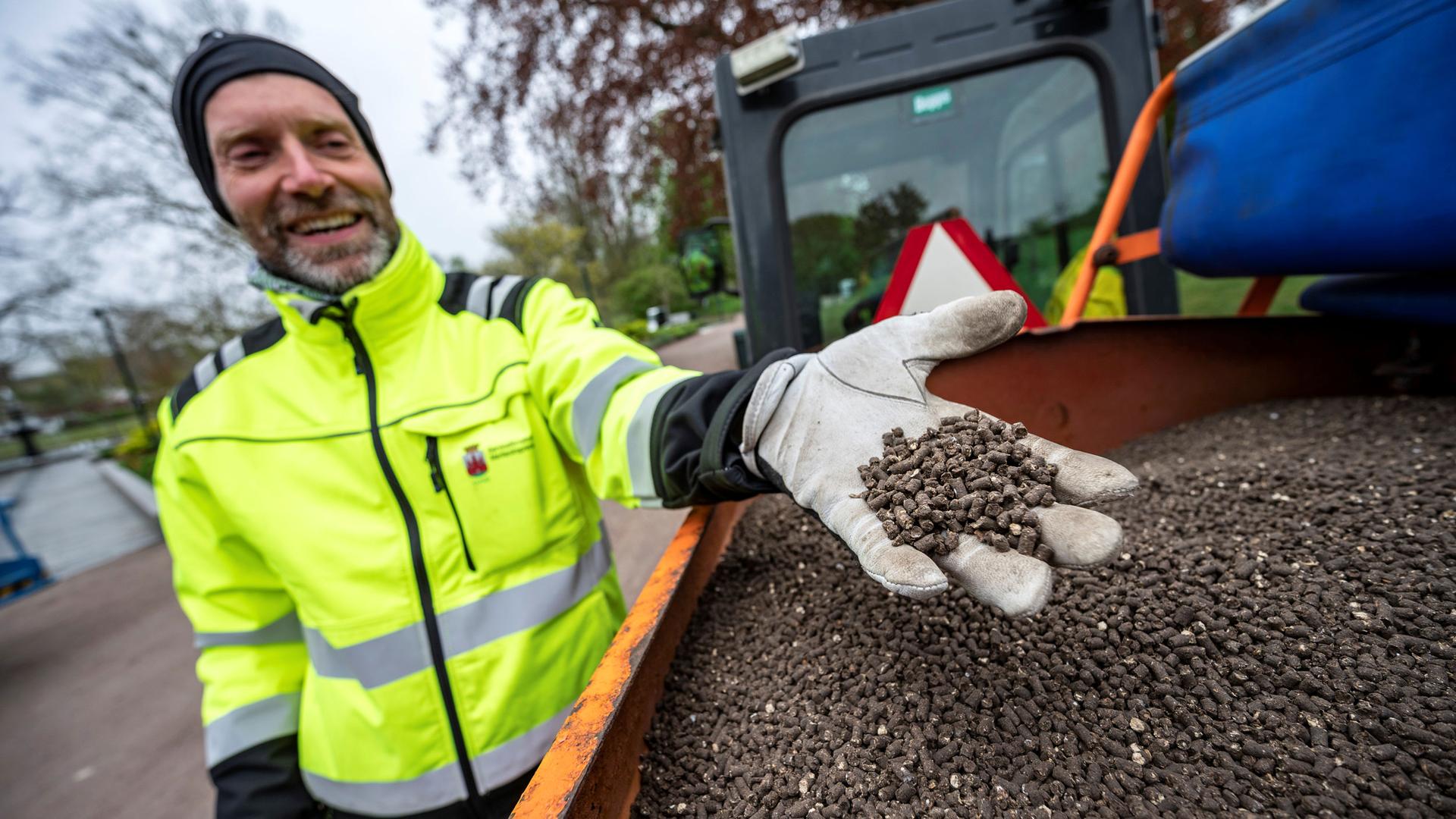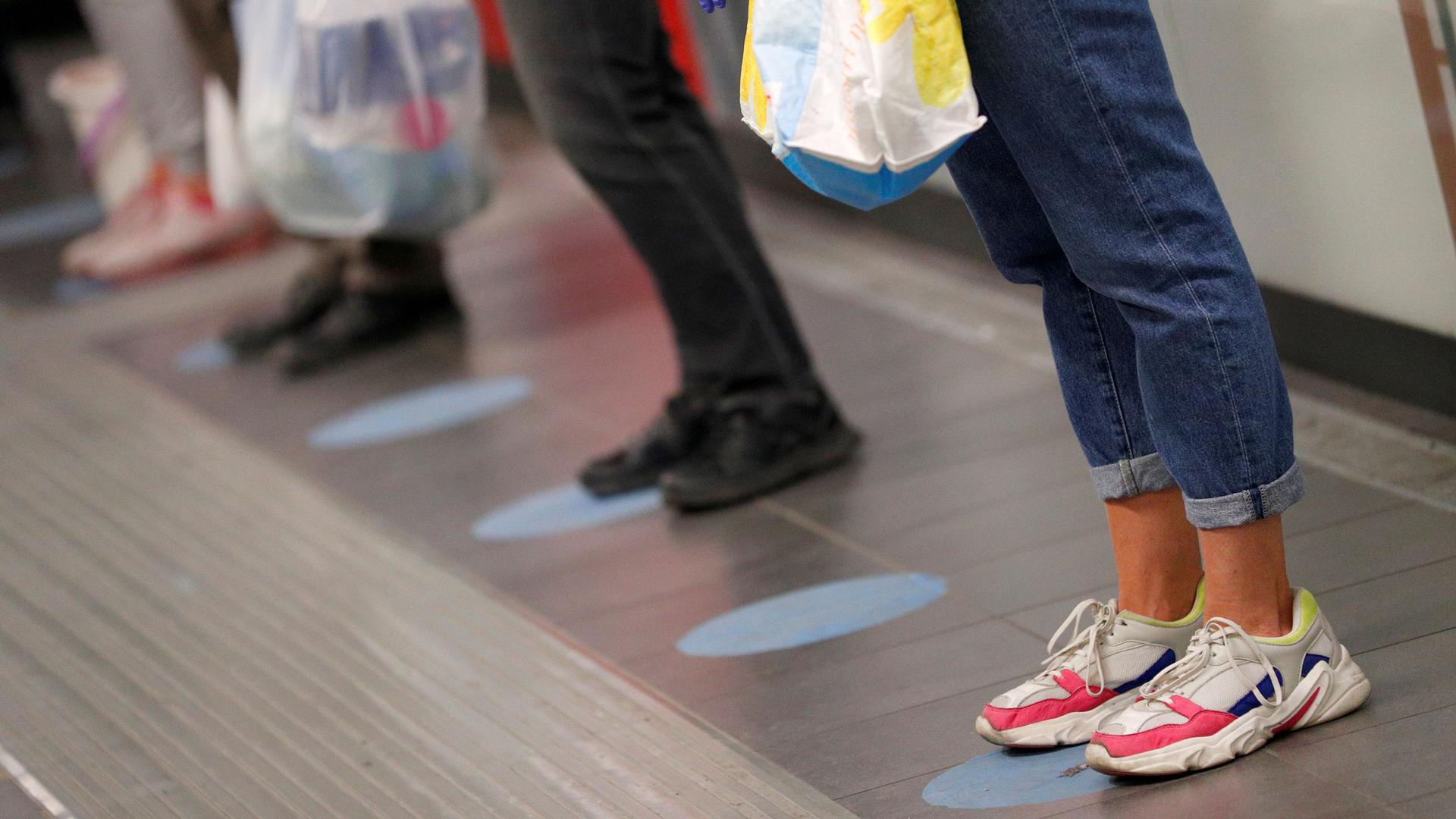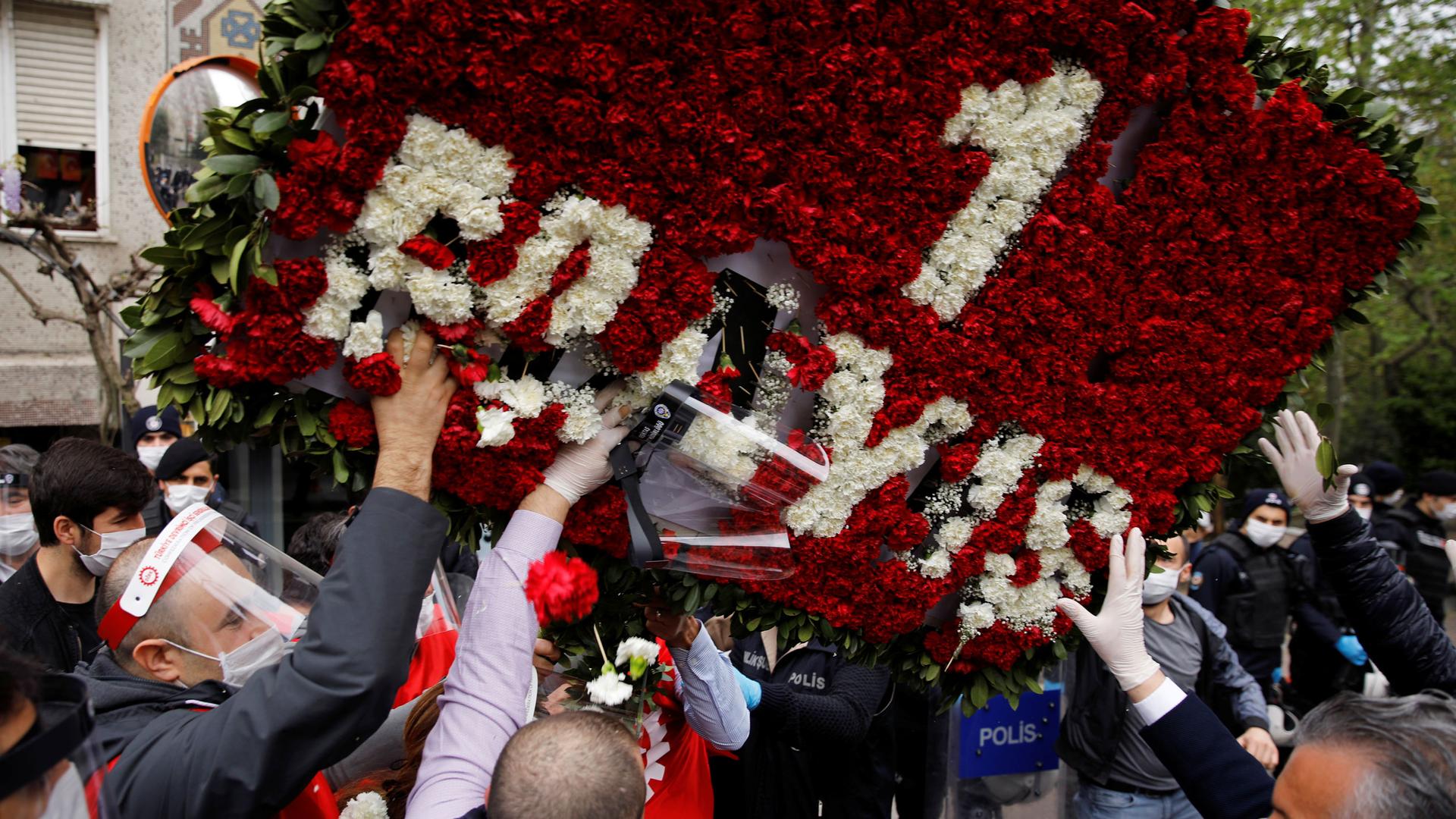Workers’ movements advocate for rights on May Day; Saudi activists allege man killed over megacity plans; Doctors wait hours as Venezuela faces fuel shortages
Trade union leaders carry a wreath of flowers as they attempt to defy a ban and march on Taksim Square to celebrate May Day, during a three-day curfew amid the spread of the coronavirus disease (COVID-19), in Istanbul, Turkey, May 1, 2020.
Top of The World — our morning news round up written by editors at The World. Subscribe here.
May 1 is International Workers’ Day, and while rallies and celebrations around the world have been curtailed due to the novel coronavirus outbreak, the pandemic is starkly bringing to light many of the inequities workers face.
Police in Istanbul, Turkey, detained trade and union leaders who attempted to stage a protest at the symbolic Taksim Square, where 34 people were killed during a May Day event in 1977. In South and Southeast Asia, millions of garment workers have lost their jobs, while others are being pushed back into production without the proper safety measures in place.
Essential workers from some of the US’s largest corporations — including Amazon, Instacart, Walmart, Target and FedEx — are striking to demand workers’ benefits such as hazard pay, sick leave and protective equipment. Many front-line workers say they feel exposed, and that employers have put profits over their health and safety during the pandemic.
History: The bloody story of how May Day became a holiday for workers
Saudi activists allege a tribesman was killed over glitzy megacity plans
The death of a tribesman in northwest Saudi Arabia has raised alarms about the government’s plans to forcibly remove locals from their land in order to build a $500 billion futuristic city called NEOM.
Saudi Arabia announced plans for the megacity back in 2017. This region is home to the Huwaitat tribe, who have occupied these areas for hundreds of years and claim to be descendants of Prophet Muhammad. Now, they are being forced to evacuate.
And: US report slams Saudi Arabia for beoutQ-related piracy acts
Also: ‘Destructive policies’: Turkey slams UAE over Middle East, Africa
Doctors wait hours to fill tanks as Venezuela faces fuel shortages
Every day before dawn in Caracas, essential workers such as doctors line up for hours at the few gas stations that still have fuel. The OPEC nation with the world’s largest oil reserves is short on gas because its refineries have collapsed. Rising petrol shortages is making Venezuelans’ lives tougher. When the pandemic struck, Venezuela was already suffering from hyperinflation and a battered health system. Now, the government has reinstated strict economic controls — for example, setting the price of eggs at more than a month’s wages. Critics of President Nicolás Maduro blame the collapse on government corruption and mismanagement. The government blames US sanctions.
And: Iran is hauling gold bars out of Venezuela’s almost-empty vaults
What Germany’s energy revolution can teach the US
Twenty years ago, Germany embarked on an ambitious program to transform the way it produced electric power. It became a model for countries around the world, showing how renewable energy could replace fossil fuels in a way that drew wide public buy-in by passing on the benefits — and much of the control — to local communities. Now, the steps Germany took on this journey, and the missteps it made along the way, provide critical lessons for other countries seeking to fight climate change.
And: Clean energy could get Americans back to work post-pandemic
Lebanon faces growing turmoil
Lebanon has suffered six months of protests and is teetering on the edge of an economic collapse. Those protests have been mostly quiet during the lockdown, but now they have returned as prices are rising quickly and many Lebanese fall below the poverty line.
Still, some Americans are looking at the US response to COVID-19 and say they feel safer in Lebanon than back home.
Also: You think we care about masks?’: Anger and poverty grip Lebanese city
Immigrant ‘digital first responders’ provide vital services. They’re in a financial crisis.
A new report from the City University of New York’s Center for Community Media argues that immigrant-focused news outlets such as Punjabi Radio USA are vital and need to be supported. For some, they’re the only trusted sources of information on specific problems facing some immigrant groups.
And in Panama, some 2,000 migrants — many of them children under age 5 — have been detained for months in the Darién Gap, near the rainforest separating South and Central America.
Also: Coronavirus: Special train ferries stranded Indian migrants
Sweden turns to chicken manure to dissuade would-be revelers

A town in southern Sweden has turned to an unusual source to prevent the coronavirus spreading during an annual festive event: chicken manure.
The university town of Lund began spreading chicken droppings in its central park to put off would-be revellers who would usually come on April 30 to celebrate Walpurgis Night. Talk about party poopers.
Morning meme
One Canadian music teacher has really captured the feeling of working from home.

In case you missed it
Listen: How social distancing is impacting global vaccination efforts

Social distancing measures have been effective at countering the coronavirus pandemic, but have paralyzed global vaccination efforts. Already millions of children have become vulnerable to polio, measles, yellow fever and other killers. And, the death of a tribesman in northwest Saudi Arabia has raised alarms about the government’s plans to forcibly remove locals from their land in order to build a $500 billion futuristic city. Also, when the NHL postponed its season in early March, hockey fans were left in the lurch. That didn’t stop a family in Ontario, Canada, who decided to create their own end to the NHL season — from their basement.
Don’t forget to subscribe to The World’s Latest Edition podcast using your favorite podcast player: RadioPublic, Apple Podcasts, Stitcher, Soundcloud, RSS.
